
The 6th Conference on Practice and Research for Social Service Excellence
“Developing your agency through evidence-based approach to social impacts” is the theme of the coming conference. With a view to widen our sharing platform, different stakeholders are invited to be the conference speakers. We invite local social service agencies to share how they use social impact assessment to demonstrate the social impact of their services, and subsequently get insights and resources for developing related services. Parties are also invited to introduce different models in measuring social impacts, so as to let participants understand the application of those models and the resources involved. Representatives of private donors will come and share their expectation on the social service agencies in evidence-based reporting.
Moreover, we are glad to have Prof. Albert Teo from The National University of Singapore to be our keynote speaker at the conference. Prof. Teo teaches in the Department of Management and Organization at the Business School, and he specializes in organization ecology and management. In the coming conference, he will be introducing how the social service agencies in Singapore are encouraged to use evidence in demonstrating their services’ social impacts. He will be running a post-conference workshop for us on creating favourable environment for conducting social impact assessment in agencies.
$280 HKCSS member / $330 Non-member (on or before March 20)
* Special Offer: for participants who are enrolling conference & workshop
$430 HKCSS member / $530 Non-member (on or before March 13)
$580 HKCSS member / $680 Non-member (on or before March 20)
(by phone) 28642975 (Ms Agnes Yang) / 28762414 (Ms Tammi Hsu)
| 9:00am | Welcome Speech | |
| 9:10am | Keynote Speech:
Professor TEO Chu Ying, Albert | |
| 10:10am | Session 1: Cases Sharing | |
Experiences Sharing on Social Impact Assessment from the Salvation Army Youth Employment ServiceMr. KWONG Ka Shi
The Salvation Army |
Hotmeal Service – Kiddy Heart Canteen: Social Impact Assessment and Service DevelopmentMr. CHIU Han Man, Raymond
Baptist Oi Kwan Social Service |
|
Using SROI to Measure the Social Returns for GroundWorks of the St. James‘ SettlementMs. Dora CHENG
St. James’ Settlement |
Another Chapter after Output-based and Outcome-based EvaluationMs. Maria CHEUNG
New World Development Company Limited |
|
| 11:50pm | Break | |
| 12:00pm | Session 2: SIA Models Sharing | |
How to Apply SROI in A Qualitative Manner?Dr. Terence YUEN The Hong Kong Institute of Social Impact Analysts |
||
Social Impact Measurement – A Novice ApproachMr. Ted KWAN, CFA Fullness Social Enterprises Society |
||
Social Impact Assessment and Its FrameworksMr. Alvin CHEUNG Our Hong Kong Foundation |
||
| 1:20pm | Lunch | |
| 2:30pm | Session 3: Funder Sharing | |
Outcome Evaluation – Approach Adopted by the Hong Kong Jockey Club Charities TrustMr. Bryan WONG
Ms. Ada CHU The Hong Kong Jockey Club |
||
| 3:30pm | Break | |
| 3:45pm | ||
| Symposium | ||
Evidence-based practice in Hong Kong: Challenges and PromiseProfessor Minseop KIM
Department of Social Work, The Chinese University of Hong Kong |
4:45pm | Conclusion |
Topic: Ground Sensing: From Community Mapping to Impact Measurement
Ground sensing is a term commonly used in the community development sector in Singapore. Ground sensing refers to various efforts carried out by community development practitioners to understand the thoughts and perceptions, feelings and attitudes, and behaviours and actions of the different stakeholders in the community. Ground sensing efforts are necessary to ensure that social interventions are effective and impactful.
Before a social intervention program can be crafted, a community mapping exercise should first be conducted. As a form of ground sensing, community mapping results in deeper understandings of the community members’ dreams and aspirations, their problems, needs and priorities, and their assets, resources and strengths. Community mapping also yields valuable insights into the expectations, positions and interests of the key stakeholders in the community, as well as the resources and contributions that they can bring to the table. Such understandings and insights can guide the community development practitioner in developing an impactful intervention, with an underlying theory of change that is strongly rooted in ground realities.
Even when a social intervention programme is up and running, the community development practitioner should still engage in ground sensing at regular intervals. Ground sensing allows the practitioner to evaluate the continued effectiveness and impact of the intervention. Impact measurement methods enable the practitioner to document and measure the transformations/changes experienced by the community members and other key stakeholders, as a consequence of their participation in the intervention. Such methods also red-flag areas for concern, such as unintended, negative outcomes experienced by the community members. Post-intervention ground sensing thus enables the practitioner to continuously adjust and improve the intervention for optimal effectiveness and impact.
Pre- and post-intervention ground sensing can be carried out using various qualitative research methods. Qualitative methods allow the community development practitioner to collect rich data which, when analysed, yield deep understandings and insights. Furthermore, qualitative methods such as participatory action research, appreciative inquiry and community narratives actually facilitate the empowerment of the community members.
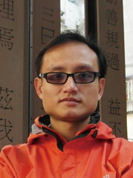
Mr. KWONG Ka Shi
Research Officer
Social Services Department
The Salvation Army
Topic: Experiences Sharing on Social Impact Assessment from the Salvation Army Youth Employment Service
In 2010, the Salvation Army Youth Employment Service started a project under the Social Welfare Development Fund to evaluate the effectiveness of our initiative "Work-based Model” for the unemployed youth. In this study, a scientific Employability Assessment Tool for the young people was also verified. In 2014, the Salvation Army Youth Employment Service joined a programme called “Supporting Youth-in-transition in Upward Mobility”. It was organised by the Rotary International District 3450 and the social impact assessment of the programme was conducted by the Hong Kong Council of Social Service. The Salvation Army Youth Employment Service and our partner Rotary International District 3450 found that the results derived from the assessment are useful in refining the framework of the service. Those results also provided evidence to prove our service’s effectiveness and impact to our service users, partnership organisations and our society. In 2015, the Salvation Army Youth Employment Service conducted another social impact assessment in collaboration with the Hong Kong Council of Social Service on another "Work-based Model” project. Afterward, the Salvation Army Youth Employment Service continues to conduct two more social impact assessments in the "Work-based Model” projects with other partners and in other fields. In the future, the Salvation Army Youth Employment Service is going to review the work related to impact assessment in Hong Kong, based on the core elements of the impact assessment from our International Headquarters, and experience from the past several social impact assessments.

Mr. CHIU Han Man, Raymond
Deputy Chief Executive Officer
Baptist Oi Kwan Social Service
Topic: Hotmeal Service – Kiddy Heart Canteen: Social Impact Assessment and Service Development
Baptist Oi Kwan Social Service has launched the Hotmeal Service first in Wan Chai since 2009. The recipients, by paying a concessionary price of HK$10, could enjoy a nutritious dinner set in order to relieve their economic pressure. In addition, social workers are available to offer counselling service and employment information to the users in need. In response to the social needs and the families with financial burden, Hotmeal has been expanding its service to various districts, and Kiddy Heart Canteen is the first Hotmeal Service for impoverished children and parents in Hong Kong. Besides providing a nourishing set of dinner, a series of activities and caseworks are implemented for children and parents via play, music and art. The Service aims not only to ensure the children are receiving sufficient nutrition, but also to increase their chances to be nurtured and developed, emotionally relieved, parenting support, as well as strengthen the families’ resilience and parent-child relationship.
Through years of experience in Hotmeal service and the participation in the Social Impact Assessment, the results helped us evaluate systematically if the project is achieved with desired expectation, and as a reference for service development and improvement. From concept to implementation and to final outcomes, the assessment brought the Service to a higher effectiveness and internal consistency, so as to respond the pressing needs of the community.
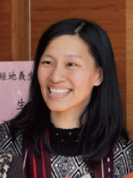
Ms. Dora CHENG
Project-in-charge,
Community Economy and Social Enterprise (GroundWorks),
St. James’ Settlement
Topic: Using SROI to Measure the Social Returns for GroundWorks of the St. James‘ Settlement
The research of the Social Return on Investment (SROI) of GroundWorks, St. James’ Settlement was made by Hong Kong Institute of Social Impact Analysts (HKI-SIA) with the funding provided by the Funding Scheme for Studies on Social Enterprises of the Home Affairs Bureau of the Hong Kong SAR Government. With the assessment conducted by Dr Terence Yuen, results show that the SROI ratio of GroundWorks for the year (2013/2014) is 7:1, meaning for every dollar invested, the GroundWorks generated around $7 of value in social impact. Among the different areas of social value creation, community development (44%) is a big impact driver, followed by work integration (32%) and community supported agriculture (24%). These three areas are the core missions of GroundWorks. It demonstrates the impacts of social enterprise in promoting community development service, improving the well-being of residents and boosting economic development.
Through conducting SROI, GroundWorks does not only understands the thoughts of different stakeholders towards herself in a clearer and systematic manner, the resulting SROI ratio also facilitates the communication of GroundWorks with business sector and government, as well as the public.

Ms. Maria CHEUNG
General Manager – Stakeholder Management & Central Administration
New World Development Company Limited
Topic: Another Chapter after Output-based and Outcome-based Evaluation
New World Group (the “Group”) has launched New World Springboard, a seven-year sustainable community programme since 2012. With a view to examining the social impact of the programme after its launch for three years, an evidence-based social impact assessment (SIA) was conducted. The Group expected that the result could help make informed decision to fine-tune the programme.
Realizing the limitation of the output-based monitoring, New World Group reckoned to adopt the SIA to review the programme’s effectiveness. Moreover, in view of the diverse stakeholders being engaged in the programme, the Group would like to deploy the framework co-developed by the University of Hong Kong and the Hong Kong Council of Social Service to evaluate the social impact of the programme.
The assessment has confirmed the programme is on the right track in fulfilling the social objectives. Adopting the assessment report’s recommendation about the programme design, execution, etc., New World Springboard’s working team would further enhance the programme and improve its overall effectiveness.
From the SIA design’s perspective, it is relatively ideal to conduct a pre-assessment at the commencement of the programme and a post- assessment after the programme having been run for several years, which helps provide a higher level of evidence. However, when conducting this SIA, New World Springboard has already been kicked off for some years. As a result, the assessment was not able to collect the participants’ data prior to their joining of the programme for comparison. Eventually, this assessment adopted one-shot approach and benchmarked against the available big data as basis to find their differences.
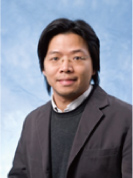
Dr. Terence YUEN
Executive Director
Hong Kong Institute of Social Impact Analysts
Topic: How to Apply SROI in A Qualitative Manner?
There is a general misunderstanding that SROI is an impact evaluation tool that demands its users to undertake quantification and even monetization of social outcomes. The talk will discuss how SROI could be applied to undertake impact forecasting without quantification or monetization. The talk will also introduce the idea of “Social Impact Risks” (the risks that the anticipated social impact may not be realised) and discuss how social investors and service operators could mitigate/minimise the risks.
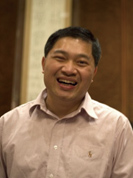
Mr. Ted KWAN, CFA
Director
Fullness Social Enterprises Society
Topic: Social Impact Measurement – A Novice Approach
Soical impact measurement has recently drawn a great deal of interests from the social sector. Social, by definition, means a network of relationship from individual to family, from community to society. It is thus difficult to have a comprehensive model that cover all kinds of social impacts generated. In FSES, we propose a simple model that starts with the benefits of the beneficiaries and their primary stakeholders of a social project, our model gives emphasis to the affective, cognitive and behaviour changes of people, which is easy to be adopted by frontline social workers or project managers.

Mr. Alvin CHEUNG
Senior Researcher
Our Hong Kong Foundation
Topic: Social Impact Assessment and Its Frameworks
Social impact assessment (SIA) has gained international attention in recent years, different SIA frameworks, such as social cost and benefit analysis (SCBA), social return on investment (SROI) and B-Impact Assessment, have been widely used in NGOs, social enterprises and even businesses in the UK, Australia and the US.
Though SIA is still at a beginning stage in Hong Kong, a number of localised assessment frameworks have already been created. As different SIA frameworks do share similar features, local practitioners may be confused as to which framework would best meet their unique requirements. The speaker of this session will introduce the basic assessment procedures, and the various SIA frameworks currently available in Hong Kong.
The speaker will also discuss Our Hong Kong Foundation’s policy recommendations on the promotion of SIA applications.

Mr. Bryan WONG
Executive Manager, Charities
(Strategic Planning & Projects)
The Hong Kong Jockey Club

Ms. Ada CHU
Charities Manager
The Hong Kong Jockey Club
Topic: Outcome Evaluation - Approach Adopted by the Hong Kong Jockey Club Charities Trust
Impact evaluation is a valuable process for both charitable foundations and NGOs. It contributes directly to important objectives such as policy advocacy, selecting proven pilot concept to scale up, fund-raising, etc. As such, there is an increasing emphasis globally on this subject.
However, there is no simple, “one size fits all” methodology for all projects or sectors. This is a particular challenge for funders which support a wide variety of causes and services. There are also risks of both “under-doing” (not measuring or learning anything meaningful) and “over-doing” (adding unnecessary burden to programme execution). A sound framework must achieve the delicate balance between the above issues.
In this session, representatives from the Hong Kong Jockey Club will share the outcome evaluation approach adopted by the HKJC Charities Trust.
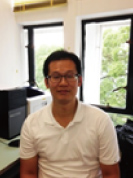
Professor Minseop KIM
Department of Social Work
The Chinese University of Hong Kong
Topic: Evidence-based practice in Hong Kong: Challenges and Promise
This presentation will discuss the evolution of Evidence-Based Practice (EBP), with a focus on its implications for social service professionals. The presenter will also share recent research on barriers and facilitators to implement EBP, and introduce EBP dissemination strategies in the US. Finally, the presenter will share his research and programme agenda for the dissemination of EBP in HK.

